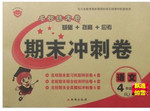题目内容
Here is some must-know information from a handbook on how people behave in doing business in some countries.
In Brazil
Brazilians are warm and friendly. They often stand close when talking and it is common for them to touch the person on the shoulder. People often greet each other (particularly women) with light cheek kisses. Schedules tend to be flexible, with business meetings sometimes starting later than planned. But to be safe, be on time. Meals can stretch for hours—there’s no such thing as rushing a meal in Brazil. Lunches also can start in the mid to late afternoon. Brazilians are social, preferring face-to-face communication over mails or phone calls.
In Singapore
Singaporeans shake hands when they meet and often also greet each other with a small, polite bow. Business cards should be offered and received with two hands. Arriving late is considered disrespectful. So be on time. Efficiency(效率) is the goal, so meetings and dealings often are fast-paced. Singaporeans are direct in their discussions, even when the subject is about money. Rank is important and authority is respected. This determines both people interact in meetings. For example, people avoid disagreeing outright with someone with a higher rank.
In the United Arab Emirates
In the UAE, status is important, so the most senior or oldest should be greeted first with their titles. The handshake seems to be longer than elsewhere. So, do not pull away the handshake. Women should cover themselves when it comes to dress. Men also tend to be covered from neck to elbows(肘部) and down to the knees. People do not avoid entertaining in their homes, but they also hold business meals at restaurants. Touching or passing food or eating with your left hand is to be avoided. When meetings are one-to-one, if your host offers you coffee, you should refuse. It might seem odd, but it is a cultural tradition. Coffee should only be accepted if it is always set out or presented.
In Switzerland
The Swiss tend to be formal and address each other by last name. They also are respectful of private lives. You should be careful not to ask about personal topics. Punctuality (守时) is vital, something that comes from a deep respect for others’ time. Arrive at any meeting or event a few minutes early to be safe. They also have clear structure in their companies. Higher-ups make the final decisions, even if others might disagree. Neat, clean dress is expected. The Swiss follow formal table manners. They also keep their hands visible at the table and their elbows off the table. It is polite to finish the food on your plate.
1.The passage is mainly about ________.
A. communication types
B. the workplace atmosphere
C. customs and social manners
D. living conditions and standards
2.Why do Singaporeans avoid arguing with their boss?
A. They put efficiency in the first place.
B. They dislike face-to-face communication.
C. They want to finish meetings as quickly as possible.
D. They are supposed to obey the person of a higher rank.
3.In the UAE, when should you refuse the coffee if it is offered?
A. When greeting seniors.
B. When meeting the host alone.
C. When attending a presentation.
D.When dining with business partners.
4.In which country do people care about where to put their hands at the dinner table?
A. In Brazil. B. In Singapore.
C. In the United Arab Emirate. D. In Switzerland.
1.C
2.D
3.B
4.D
【解析】
试题分析:这是一篇记叙文。这篇短文是一本手册上摘录下来的,是关于不同国家里的风俗习惯和社交礼仪的。在这篇短文中一共出现了四个国家或地区。
1.1】C 主旨大意题。这篇短文主要讲述的什么?这篇短文的第一段就是文章的中心句,意为:这里是一个从一本手册上摘录下来的,关于不同的国家中,人们的行为举止是怎样的。故它讲述的是不同的国家风俗习惯和社交礼仪。故选C。
2.2】D 细节理解题。为什么新加坡人不会跟老板发生争吵。根据短文中关于新加坡的这一段内容可知,在新加坡等级是很重要的,权威的人物必须受到尊敬。由此我们可以知道,新加坡人不会跟他们的老板争吵。故选D。
3.3】B细节理解题。在阿联酋,什么时候你应该拒绝咖啡?根据短文第四段中if your host offers you coffee, you should refuse. It might seem odd, but it is a cultural tradition. Coffee should only be accepted if it is always set out or presented.可知,如果主人给你咖啡,你应该拒绝。故应该选B。
4.4】D 细节理解题。在哪个国家人们把手放在餐桌上?根据短文的最后一段可知,在瑞士这个国家里,人们遵循着正式的餐桌礼仪,他们在吃饭的时候,要把手放在餐桌的上面,胳膊肘放在下面,而且要吃光盘里的东西。故选D。
考点:文化类短文阅读。

 名校练考卷期末冲刺卷系列答案
名校练考卷期末冲刺卷系列答案